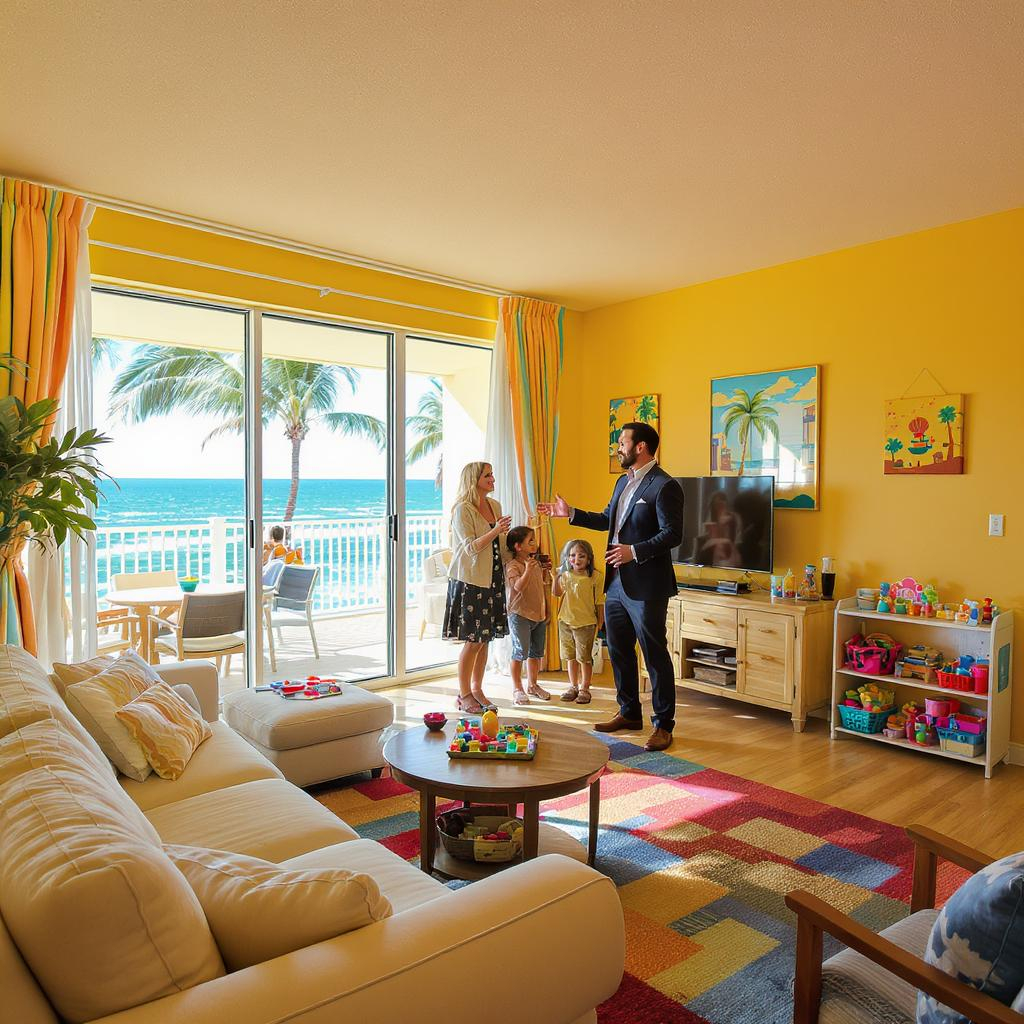
Key Takeaways
- Timeshare presentation deals can offer free or discounted vacations, but require your time and attention.
- Sitting through a presentation doesn’t require you to buy, but sales tactics can be high-pressure.
- A timeshare can make sense for frequent travelers who love returning to the same destination.
- Timeshares are not financial investments—they don’t increase in value.
- There are both benefits and drawbacks depending on your lifestyle, flexibility, and travel goals.
When you hear the phrase “timeshare presentation deals,” you might think of free vacations, discounted resort stays, or even gift cards just for sitting through a 90-minute talk. It sounds like a win-win—right?
But is it really worth your time? And more importantly, is buying a timeshare ever a good move?
If you’re someone who loves to travel—or loves the idea of getting free vacations just by attending a pitch—this article breaks down the real pros and cons of timeshare presentation deals, and whether buying a timeshare is worth it for you.
What Is a Timeshare Presentation Deal?
A timeshare presentation deal is an offer from a resort or vacation club that provides you with a discounted or complimentary vacation in exchange for attending a sales presentation. Typically, these last from 90 minutes to two hours and are designed to introduce you to the benefits of timeshare ownership.
These deals can include:
- Free or discounted hotel stays
- Resort credits or cash incentives
- Gift cards or attraction tickets
Sounds tempting, especially if you enjoy traveling on a budget. But there’s more beneath the surface.
How Do Timeshare Presentations Work?
Expect a structured sales meeting. Typically, you arrive at a meeting room or sales office at the resort – often a conference-style space set up with desks or chairs. At a timeshare presentation, attendees usually sit at tables or in a showroom while a video or speaker introduces the timeshare program. A travel writer describes the process: you start with an introduction and perhaps a video about the resort’s timeshare program, then move to one-on-one discussions. A salesperson will ask about your finances and travel preferences, then explain how their timeshare (often a points-based system) would work for someone like younerdwallet.com. They will tour you through a model unit or brochure showing room types and amenities.
Finally, you’ll meet a “closer” – a sales agent whose job is to get you to commit. They know most attendees just want the free vacation, so they will try hard to convince you to buy a timeshare contract. Experts note that these salespeople are incentivized by large commissions, so they often use emotional appeals – painting aspirational travel scenarios, talking about vacations as a legacy for your family, etc. – to pressure you into signing. The closer may offer limited-time discounts or payment plans on the spot. It’s very common to hear high-pitched sales tactics; one guide warns they will often “tug at your emotions” and make you feel like part of the family before asking for a long-term commitment.
In short: you watch a short presentation and then sit down with a salesperson. One travel blogger summed it up: “You will watch a short video, sit down with a salesperson, tell them ‘no’ a few times, and they will let you go on your way”upgradedpoints.com. (The image above shows what the sales office often looks like.) Most presentations last about 90–120 minutes, though some can be longer. They generally stick to the promised time – so make sure you arrive on schedule and keep track of your clock or phone.
If your goal is just the deal, it’s best to be upfront but polite: let the salesperson know early that you’re only interested in the offer, not in buying a timeshare. They may try to probe deeper or push back a bit, but sales staff typically prefer to spend time on potential buyers, so they’ll usually move on if you clearly decline the pitch. Also, some people find it helps to negotiate the deal a bit – for example, one savvy attendee asked for more points or credits as part of the package and succeeded
The Good: Why Timeshare Presentation Deals Can Be Worth It
1. Affordable Getaways
You can get a heavily discounted (or sometimes free) vacation in popular destinations. If you’re someone who loves exploring without spending a fortune, this is a practical way to travel.
2. No Obligation to Buy
Contrary to popular belief, you don’t have to buy anything. As long as you meet the requirements and sit through the presentation, you’ll still get the perks.
3. Opportunity to Learn
If you’ve ever been curious about timeshares or vacation ownership, these presentations are a great way to learn the details—just bring your critical thinking cap.
4. Good for Routine Travelers
If you travel regularly to the same place—say, the beach every summer or the mountains every winter—a timeshare can offer consistency, comfort, and potentially long-term savings over booking hotels.
The Bad: Why You Should Be Cautious
1. High-Pressure Sales Tactics
Most presentations are hosted by trained salespeople whose goal is to sell. They may use time-sensitive offers, emotional appeals, or even guilt. If you’re not firm with your boundaries, you might find yourself signing paperwork you never planned to.
2. Maintenance Fees Add Up
Even if the initial purchase price seems affordable, most timeshares come with annual maintenance fees that increase over time. These fees are due whether or not you use your timeshare that year.
3. Resale Value Is Low
Timeshares don’t appreciate like traditional real estate. In fact, many timeshare owners struggle to sell theirs for even a fraction of the original price.
4. Limited Flexibility
Timeshares work well for people who like routine. But if your travel plans vary year to year, or you want more freedom in when and where you travel, you may find the timeshare model too restrictive—even with point systems.
Is a Timeshare a Good Investment?

Let’s be clear: a timeshare is not a financial investment. It won’t grow in value or generate rental income like a vacation home might. But it can be considered an emotional or lifestyle investment if:
- You plan to vacation consistently each year.
- You prefer upscale accommodations with resort-style amenities.
- You enjoy returning to the same destination.
- You value convenience and are okay with limited flexibility.
If you’re buying because you love traveling and want the peace of mind that comes with having a guaranteed vacation spot, a timeshare might be worth it. But if you’re expecting financial gains, look elsewhere.
What If I Just Want the Free Trip?
Honestly? It can be worth it—if you’re disciplined.
If you’re fine with sitting through a presentation and politely declining at the end, you can walk away with a great deal. But be prepared:
- You may need to meet certain income requirements.
- Couples must often attend together.
- There will be sales pressure—so have a plan to say no.
Many savvy travelers treat it as a game: get the vacation, sit through the pitch, enjoy your stay, and leave without spending a dime. If you have the time and the patience, it can absolutely work in your favor.
Final Thoughts: Should You Say Yes to a Timeshare Presentation Deal?
If you’re a traveler who enjoys great deals, free vacations, and has a strong “no” game, timeshare presentation deals can be worth it—just for the perks.
But if you’re considering buying a timeshare, take your time. Think about your travel habits, financial situation, and long-term goals. A timeshare isn’t for everyone, but for the right person, it could be a decent lifestyle choice—not an investment.
FAQ: Timeshare Presentation Deals
Is it really free to attend a timeshare presentation?
Yes, the vacation is typically free or discounted, but you must attend the full presentation. Some restrictions may apply.
Can I walk away without buying anything?
Absolutely. You’re under no legal obligation to buy. Just be prepared to deal with high-pressure sales tactics.
How long do the presentations last?
Most last between 90 minutes to 2 hours. Sometimes longer depending on how aggressive the sales team is.
Are timeshares worth buying if I love to travel?
It depends. If you enjoy traveling and don’t, it could work for you. If you prefer flexibility, you may interested in a timeshare that has a point based system.
Do timeshare maintenance fees increase over time?
Yes. These fees often go up annually and must be paid even if you don’t use your timeshare.
Can I resell my timeshare later?
Yes, but resale values are usually very low. Many owners sell for pennies on the dollar—or can’t sell at all.